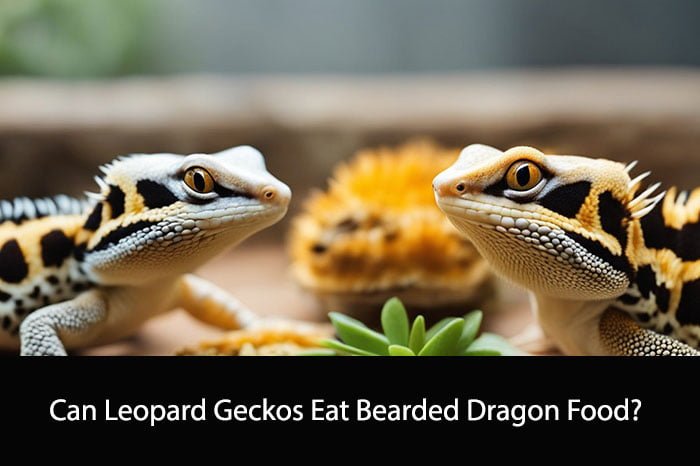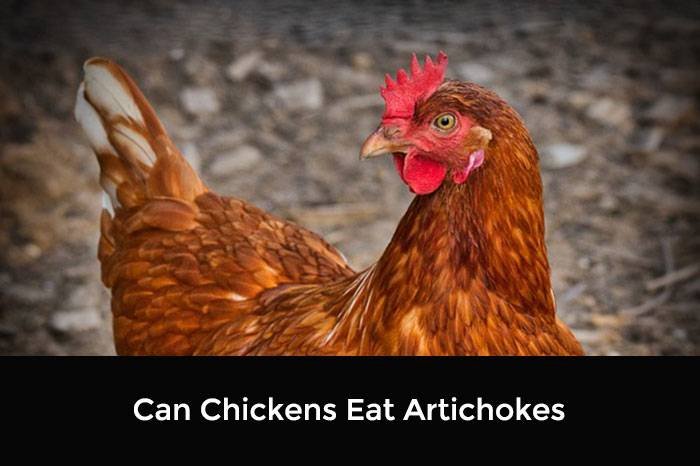Leopard geckos and bearded dragons are two of the most popular reptile pets. They are both relatively easy to care for, and their diets are similar in many ways. However, one question that often arises is whether leopard geckos can eat bearded dragon food. In this article, we will explore this topic and provide you with all the information you need to know.
Firstly, it’s important to note that although leopard geckos and bearded dragons are both reptiles, they have different dietary requirements. Leopard geckos are insectivores, which means they primarily eat insects. On the other hand, bearded dragons are omnivores, meaning they eat both insects and vegetables. Therefore, their food requirements are not the same. However, some bearded dragon foods may be suitable for leopard geckos, and we will discuss this in more detail later in the article.
It’s also worth mentioning that feeding your leopard gecko a diet that is not suitable for them can have serious health consequences. For example, feeding them too much protein can lead to obesity, while a lack of calcium can cause metabolic bone disease. Therefore, it’s important to ensure that your leopard gecko is getting the right nutrients in the right amounts. With that in mind, let’s dive deeper into the question of whether leopard geckos can eat bearded dragon food.
Dietary Requirements of Leopard Geckos
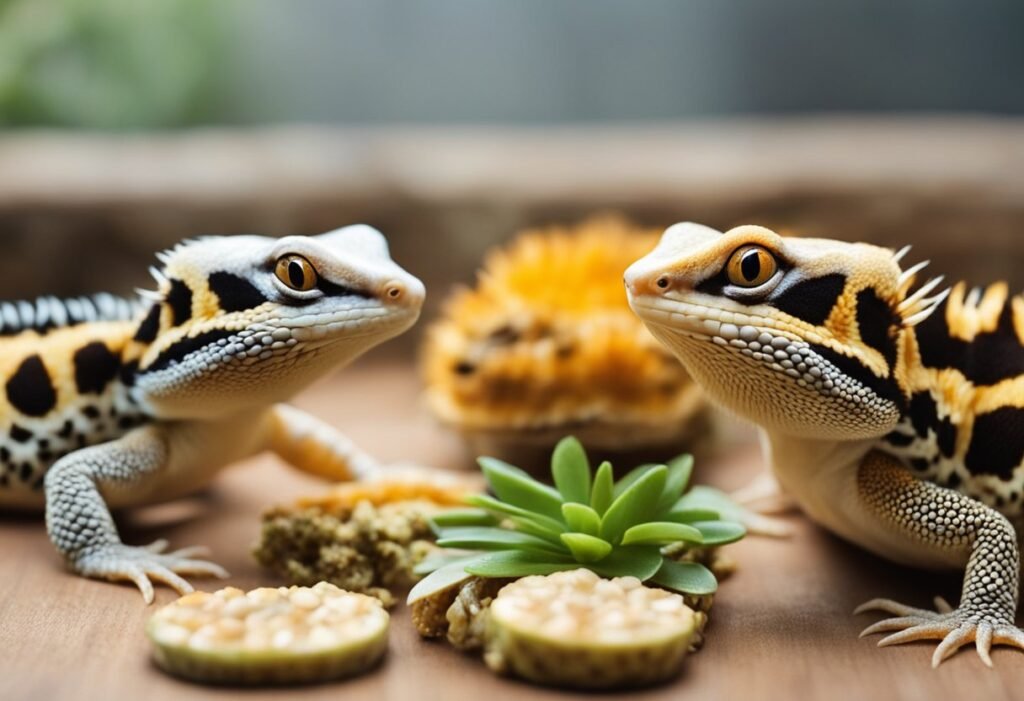
As owners of leopard geckos, it is important to understand their dietary requirements to ensure they remain healthy and happy. Leopard geckos are insectivores and their diet should consist of live insects such as crickets, mealworms, and dubia roaches. It is important to feed them a variety of insects to ensure they receive a balanced diet.
Leopard geckos require a diet that is high in protein and low in fat. Feeding them bearded dragon food is not recommended as it is formulated for a different species with different dietary requirements. While some of the ingredients in bearded dragon food may be suitable for leopard geckos, it is not a complete and balanced diet for them.
In addition to live insects, leopard geckos also require calcium and vitamin supplements. Calcium is essential for strong bones and to prevent metabolic bone disease. Vitamin supplements are necessary to ensure they receive all the necessary vitamins and minerals they need.
It is important to note that leopard geckos have different feeding requirements depending on their age. Juvenile leopard geckos require more frequent feedings than adult leopard geckos. As they grow, their feeding schedule can be adjusted accordingly.
In conclusion, leopard geckos require a diet that is high in protein and low in fat, consisting mainly of live insects and supplemented with calcium and vitamins. Feeding them bearded dragon food is not recommended as it does not provide a complete and balanced diet for them. By understanding their dietary requirements, we can ensure our leopard geckos remain healthy and happy.
Nutritional Comparison
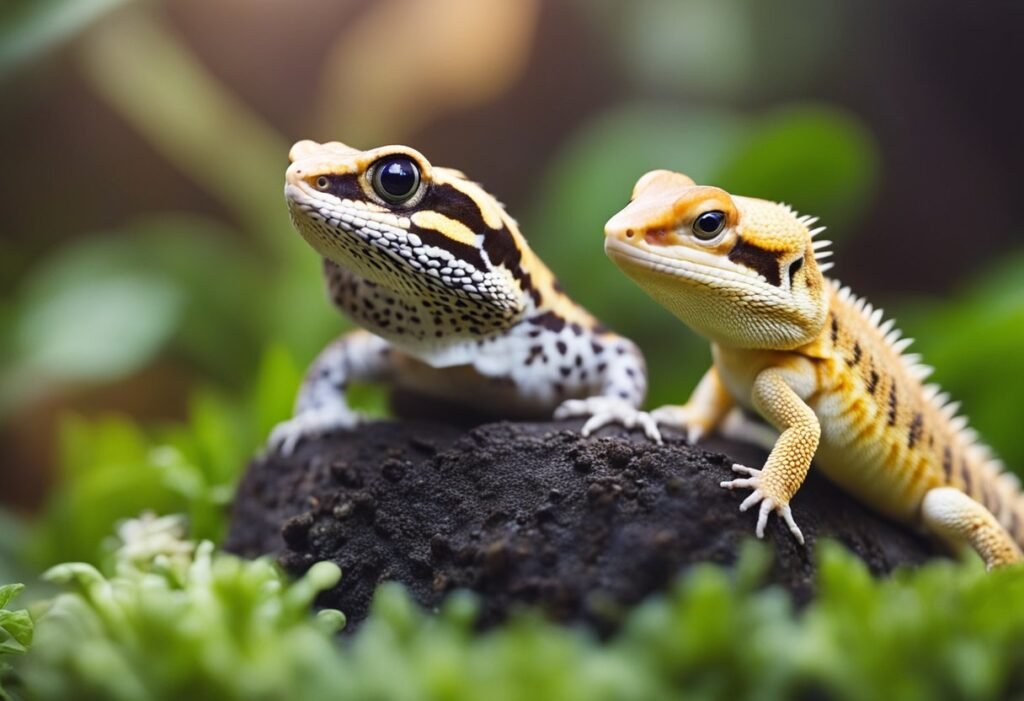
Bearded Dragon Food Composition
When considering whether or not leopard geckos can eat bearded dragon food, it is important to first understand the composition of typical bearded dragon food. Bearded dragon food is typically made up of a variety of vegetables, fruits, and insects. The exact composition of bearded dragon food can vary depending on the brand and specific product. However, most bearded dragon food contains a mix of vegetables such as kale, carrots, and squash, as well as fruits like apples and strawberries. Additionally, bearded dragon food often includes insects such as crickets or mealworms.
Leopard Gecko Food Needs
Leopard geckos have different nutritional needs than bearded dragons, and therefore require a different diet. While bearded dragons are omnivores and can eat a variety of fruits, vegetables, and insects, leopard geckos are strictly insectivores. This means that their diet should consist primarily of insects, such as crickets, mealworms, and waxworms. In addition to insects, leopard geckos also require a source of calcium, which can be provided through supplements or by dusting their food with calcium powder.
When comparing the nutritional composition of bearded dragon food to the dietary needs of leopard geckos, it becomes clear that bearded dragon food is not an ideal choice for leopard geckos. While bearded dragon food may contain some of the insects and vegetables that leopard geckos need, it is not formulated specifically for their nutritional needs. Therefore, it is recommended that leopard gecko owners feed their pets a diet that is specifically designed for their species, rather than relying on bearded dragon food as a substitute.
Risks of Feeding Bearded Dragon Food to Leopard Geckos
Feeding a leopard gecko with bearded dragon food can be a risky decision. While both species are reptiles and share some similarities, their dietary requirements are quite different. Leopard geckos require a diet that is high in protein and low in fat, while bearded dragons need a more balanced diet that includes a variety of vegetables and fruits.
Here are some potential risks of feeding bearded dragon food to leopard geckos:
- Nutritional Imbalance: Bearded dragon food is formulated to meet the nutritional needs of bearded dragons, not leopard geckos. Feeding your leopard gecko with bearded dragon food can result in a nutritional imbalance that can lead to health problems over time.
- Digestive Issues: Leopard geckos have a smaller digestive system than bearded dragons and may have difficulty digesting the larger food items that are commonly found in bearded dragon food. This can lead to digestive issues such as impaction or constipation.
- Obesity: Bearded dragon food is often high in fat and can cause obesity in leopard geckos if fed regularly. Obesity can lead to a range of health problems, including joint problems and heart disease.
Overall, it is best to avoid feeding bearded dragon food to leopard geckos. Instead, provide your leopard gecko with a diet that is specifically formulated for their nutritional needs. This will help ensure that your pet stays healthy and happy for years to come.
Safe Dietary Alternatives for Leopard Geckos
As leopard geckos are insectivores, it is important to provide them with a diet that is rich in protein and low in fat. While bearded dragon food may seem like a convenient option, it is not recommended to feed it to leopard geckos as it is formulated for a different species with different nutritional requirements.
Instead, we recommend feeding leopard geckos a diet that consists primarily of live insects such as crickets, mealworms, and dubia roaches. These insects can be dusted with calcium and vitamin supplements to ensure that the gecko is receiving all the necessary nutrients.
In addition to live insects, leopard geckos can also be fed small amounts of fruits and vegetables as a treat. Some safe options include diced apples, carrots, and sweet potatoes. However, it is important to note that these should not make up a significant portion of the gecko’s diet as they are not a natural part of their diet in the wild.
Overall, it is important to provide leopard geckos with a varied and balanced diet that meets their nutritional needs. While bearded dragon food may seem like a convenient option, it is not a suitable replacement for a diet of live insects and occasional fruits and vegetables.
Feeding Frequency and Portion Control
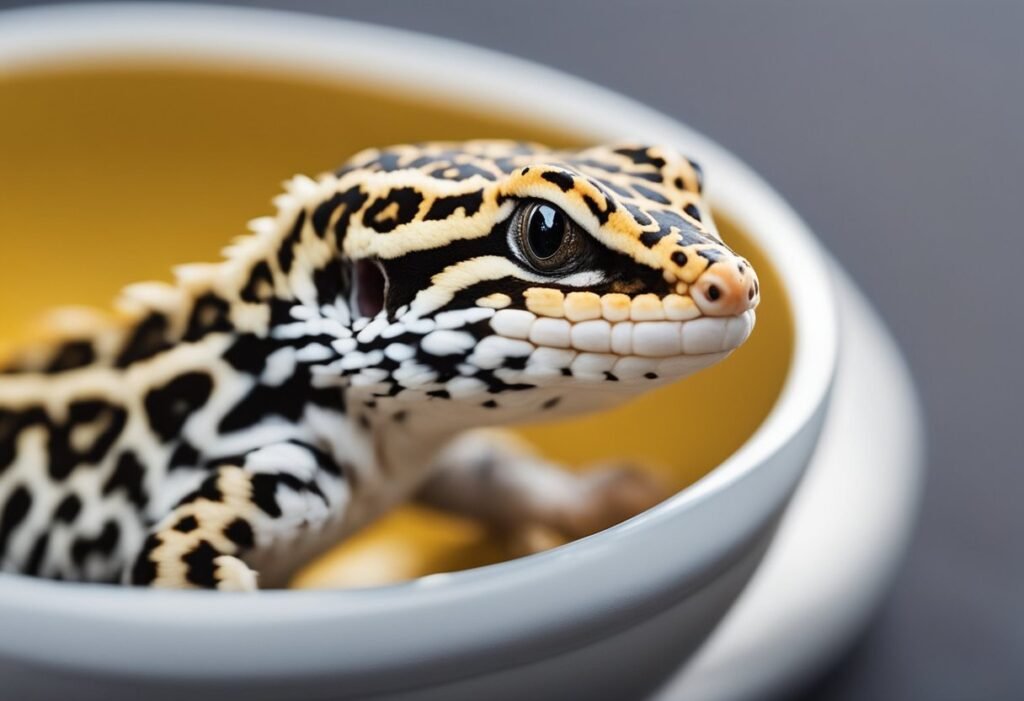
When feeding leopard geckos bearded dragon food, it is important to consider the frequency and portion sizes. Leopard geckos have different dietary requirements than bearded dragons, and overfeeding or underfeeding can lead to health problems.
We recommend feeding adult leopard geckos once every two to three days, while juvenile leopard geckos should be fed daily. It is important to monitor your gecko’s weight and adjust the feeding schedule accordingly. Overfeeding can lead to obesity and other health issues.
When it comes to portion control, it is best to feed your leopard gecko small amounts of bearded dragon food at a time. We suggest starting with a small amount and gradually increasing the portion size as needed. It is important to provide fresh food and clean water at all times.
In addition to bearded dragon food, leopard geckos should also be offered a variety of insects such as crickets, mealworms, and waxworms. These insects should be gut-loaded with nutritious food and dusted with calcium and vitamin supplements before feeding.
Overall, feeding leopard geckos bearded dragon food can be a convenient option, but it is important to pay attention to feeding frequency and portion control to ensure the health of your pet.
Signs of Improper Diet in Leopard Geckos
As responsible pet owners, we want to ensure that our leopard geckos are receiving a balanced and nutritious diet. While it may be tempting to feed them bearded dragon food, it’s important to note that these two species have different dietary requirements.
Here are some signs that your leopard gecko may not be getting the proper nutrition:
- Weight loss: If your leopard gecko is losing weight despite eating regularly, it may be a sign that they are not getting enough nutrients from their diet.
- Lack of appetite: A lack of appetite can be a sign of many different health issues, including an inadequate diet.
- Soft or runny stools: Improper nutrition can lead to digestive issues, resulting in soft or runny stools.
- Stunted growth: If your leopard gecko is not growing at a normal rate, it may be due to a lack of essential nutrients.
To ensure that your leopard gecko is receiving a balanced diet, it’s important to feed them a variety of insects such as crickets, mealworms, and dubia roaches. You can also supplement their diet with calcium and vitamin D3 to promote healthy bone growth.
In conclusion, while it may be tempting to feed your leopard gecko bearded dragon food, it’s important to provide them with a diet that meets their specific nutritional needs. By keeping an eye out for these signs of improper nutrition, you can ensure that your leopard gecko stays healthy and happy.
Expert Recommendations on Reptile Nutrition
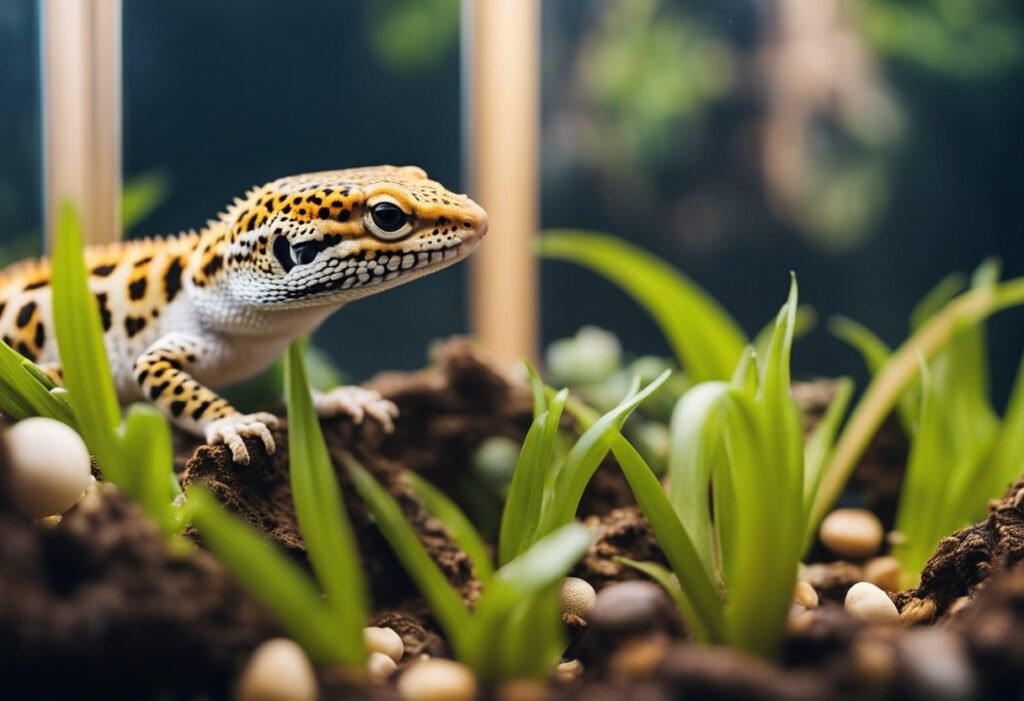
When it comes to feeding our leopard geckos, it’s important to ensure that they receive a balanced and nutritious diet. While it may be tempting to feed them the same food as our bearded dragons, it’s important to note that their nutritional requirements differ.
As experts in reptile nutrition, we recommend feeding leopard geckos a diet that is high in protein and low in fat. This can be achieved by feeding them a variety of insects such as crickets, mealworms, and waxworms. It’s important to ensure that the insects are gut-loaded with nutritious food before feeding them to our geckos.
While bearded dragon food may be marketed as a convenient and complete diet, it’s important to read the ingredients and nutritional information before feeding it to our leopard geckos. Bearded dragon food may contain higher levels of fat and lower levels of protein than what our geckos require.
In addition to insects, we also recommend feeding our leopard geckos a variety of calcium-rich foods such as calcium powder, calcium-fortified insects, and small amounts of fruits and vegetables. This will help prevent calcium deficiencies and ensure that our geckos maintain healthy bones.
Overall, it’s important to do our research and consult with experts in reptile nutrition to ensure that our leopard geckos receive a balanced and nutritious diet. By providing them with the proper nutrition, we can help them live long and healthy lives.
Frequently Asked Questions
What is an appropriate diet for leopard geckos?
Leopard geckos are insectivores, which means they primarily eat insects. The most appropriate diet for leopard geckos includes live insects such as crickets, mealworms, and waxworms. It’s important to ensure that the insects are gut-loaded, meaning they are fed nutritious foods prior to being fed to the gecko. Additionally, dusting insects with calcium and vitamin supplements is essential to prevent nutritional deficiencies.
Are there any fruits safe for leopard gecko consumption?
Leopard geckos are not known to eat fruit in the wild, and it is not a necessary part of their diet in captivity. While some fruits may be safe for leopard geckos to eat in small amounts, they do not provide significant nutritional value and can even be harmful if consumed in excess.
How does a leopard gecko’s diet in captivity differ from its wild diet?
In the wild, leopard geckos primarily eat insects and occasionally small rodents. In captivity, their diet is typically more limited to commercially available insects. It’s important to ensure that the insects are gut-loaded and dusted with calcium and vitamin supplements to provide adequate nutrition.
Can leopard geckos eat vegetables, such as lettuce?
Leopard geckos are not able to digest plant matter efficiently and do not require vegetables in their diet. In fact, feeding vegetables such as lettuce can even be harmful to their digestive system.
What alternatives can I offer my leopard gecko when I’m out of live insects?
If you are unable to provide live insects, you can offer canned insects or frozen insects that have been thawed. However, it’s important to note that these alternatives may not be as nutritious as live insects and should only be used as a temporary solution.
Are there any foods that are toxic or harmful to leopard geckos?
Yes, there are several foods that can be toxic or harmful to leopard geckos. These include avocado, citrus fruits, rhubarb, and chocolate. It’s important to research and avoid feeding any foods that may be harmful to your leopard gecko.

